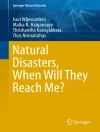Isuri Wijesundera completed her PhD in engineering at the University of Melbourne in 2016 and received her BSc degree in Electronics and Telecommunication Engineering from the University of Moratuwa, Sri Lanka in 2007. She previously worked as a Telecommunications Engineer in Sri Lanka (2007-10) and is currently attached to the Big-Data unit at Telstra, Australia. Her recent work focused on a research concerning analytical methods to find Mean First Passage Time (MFPT) on directionally biased inhomogeneous media. Dr Malka N. Halgamuge is a Researcher in the Department of Electrical and Electronic Engineering of University of Melbourne. She obtained her PhD from the same department in 2007. She was awarded the Next Step Initiative Fellowship (2015), Australia-China Young Scientist Fellowship (2014), Dyason Fellowship, University of California (UCLA), Los Angeles, USA (2013), Early Career Researcher (ECR) Award from Alexander von Humboldt Foundation (2013) and Solander Fellowships, Lund University (2007 and 2008). She was the recipient of the Vice-Chancellor”s Engagement Award (2010) and Vice-Chancellor”s Knowledge Transfer Award (2008) for her research at the University of Melbourne. Her current research interests include investigating biological effect of electromagnetic fields on humans, energy management in wireless sensor networks and prediction of natural disasters (flood and bushfires). She has written one textbook and more than 60 peer reviewed technical articles.Thrishantha Nanayakkara received the BSc and MSc degrees in electrical engineering from the University of Moratuwa (UM), Sri Lanka (1996), and Saga University (SU), Japan (1998), and PhD in robotics from SU (2001). He was a postdoctoral research fellow in the department of biomedical engineering, Johns Hopkins University, USA, 2001-2003; a senior lecturer in the faculty of engineering at the UM; a Radcliffe Fellow at Harvard University, USA (2008/09), and a research affiliate at MIT (2008/09), USA. He is currently a senior lecturer in the department of Informatics, King’s College London. His research interests are in soft robotics, and robotic interaction with uncertain environments. He has published one textbook and more than 100 peer reviewed papers.Professor Thas (Ampalavanapillai) Nirmalathas is currently the Director of Melbourne Accelerator Programs (MAP) which supports entrepreneurial activities of the University Community through business acceleration models. He is also the Director of Melbourne Engineering Research Institute (MERIT) which brings the entire research activity of the Melbourne School of Engineering under one research institute. Professor Nirmalathas obtained his BEng and PhD in Electrical and Electronic Engineering from the University of Melbourne in 1993 and 1998 respectively. He has written more than 250 technical articles across areas including microwave photonics, optical wireless network integration, and broadband networks and services.
1 Ebook di Isuri Wijesundera
Isuri Wijesundera & Malka N. Halgamuge: Natural Disasters, When Will They Reach Me?
The expected time of impact, also known as the mean first passage time (MFPT) to reach failure, is a critical metric in the management of natural disasters. The complexity of the dynamics g …
PDF
Inglese
€96.29

